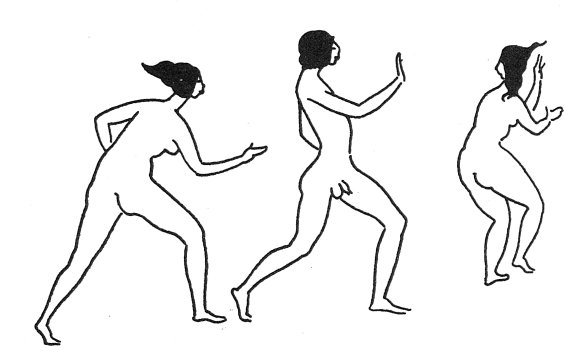
|
FOOL, if you don't want to keep an eye on your wife for your own sake, at least do so for mine, that it may whet my desire for her. What we can have for the asking we never want; to forbid a thing adds ardour to our longing. He must have a heart like iron, who loves a woman he is free to love. As for us, who are versed in the art, we must have our hopes and fears, and we must have a few rebuffs to give zest to our appetite. I don't want to hear about the happiness that never deceives. None of your steady-going, placid loves for me. My mistress must have something of the devil in her. That's a weakness of mine, and that, Corinna, cunning little minx, knew perfectly well. She knew only too thoroughly how to take me in her snare. How often, alas, have I known her, the lying jade, to say she had a dreadful headache, so as to keep me at arm's length, and how many times have I, despite the pangs it cost me, ruefully taken my departure. How many a time has she upbraided me, playing the injured innocent, when all the time it was she herself that was at fault. And when she had sufficiently tormented me, when she had revived the dying embers of my passion, she would relent and pander to my longings. How she would twine her arms about me, what loving words she'd lavish on me. How she would smother me with kisses, and, oh, ye gods, what luscious ones they were! And thou, who just now charmed my vision, do thou too be cunning; turn often. a deaf ear to my entreaties; suffer me) lying at thy door, to endure the biting cold of a long winter's night. ’Tis the only way to make my love endure. ’Tis that that's needed, ’tis that that adds fuel to my passion. I For me a plain straightforward love-affair's devoid of savour. ’Tis like a dish with two much sugar in it. My gorge doth rise at it. If Danaë within a brazen tower had never been immured, Jupiter would ne'er have made her great with child. Juno, by setting strict watch on Io with her horned brow, made her, in Jupiter's regard, more precious than before. He who desires the safe and easy way, let him go pluck the leaves of the trees and drink of the open river. Ah, my dears, if you would keep your hold upon your lovers, learn to misuse them oft. Alas! And must I give you lessons to my own undoing. It matters not. Let him who will, love the pattern woman who will always do as she's told; I can't abide her. I flee who chases me, and chase who flees me. Now, you, good sir, who think your wife so very safe; from this day forth bolt up your door at night-fall; ask who it is that comes so often and taps so cautiously; what makes your dogs bark at the dead of night; what notes are those with which that servant girl so slyly comes and goes; ask why your fair one wants so often to have her bed to herself. Let these gnawing fears at length invade the marrow of your bones, and thus compel me to use some stratagem. He's only fit to pilfer the sand of the lonely shore who can love the wife of a complacent fool. I give you solemn warning, if you don't keep watch upon your wife, she soon will cease to be my mistress. I have been a long-suffering individual. I hoped the day would come when your jealous watch would put me on my mettle. But you don't bestir yourself at all. You bear what never husband in the world should bear. Well, ’tis I myself will put an end to this too facile love. Oh, luckless that I am! Will you never shut your door against me? Shall I never have, o' nights, to risk your vengeance? Shall I never have anything to fear from you? Will never the gasping intake of the breath disturb my sleep? You'll ne'er do aught would make me wish you dead. Do I, of all men, want an easy-going husband, a husband who would prostitute his wife? You poison my pleasure by your feeble acquiescence. Why don't you look for someone to whom such meekness would be welcome? If you wish that I should be your rival, then swear your rival I shall never be. |
|
Si tibi non opus est servata, stulte, puella, |